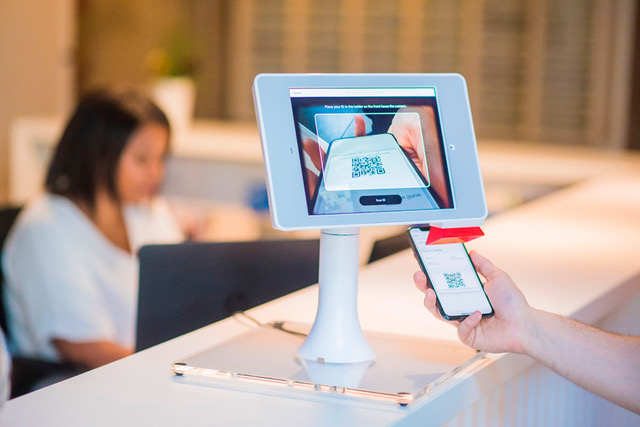
From streamlining processes to reducing costs and increasing operational efficiency, cutting-edge technology can be leveraged to great effect in modern hotel management. But there’s more to it than exciting new tools; it’s about the range of innovative possibilities that technology offers to enrich customer service and create unforgettable guest experiences.
When Arum begins a hotel development project, we stress the importance of looking at our client’s business from every angle. Gone are the days when guests saw hotels, sport facilities, and residential spaces as separate entities. Today, an all-encompassing and unified experience is what’s expected. And in order to meet this expectation, the guest journey has to be modernized, from booking to check-out. This transformation involves a curated set of tech solutions that align with the client’s unique business characteristics and vision.
Automated tasks
Artificial Intelligence is good for efficiently handling certain routine tasks. For instance, chatbots can interact with customers to facilitate reservations, answer frequently asked questions, or complete registration forms. The post-pandemic world has witnessed a rapid increase in contactless technologies for check-in, and many companies in the hotel sector now employ software to scan passports, process payments, digitize signatures, and record arrival times. This initial interaction allows guests to bypass lengthy reception queues and equips staff with the essential information they need to personalize their guests’ experience.
Enhancing efficiency with smart systems
AI’s data analysis prowess can help hotels optimize planning and processes by forecasting demand based on historical trends, managing inventory, and scheduling facility maintenance. Within guest rooms, smart sensors linked to intelligent systems can regulate temperature, lighting, and entry with electronic keys. Modern hotel management can leverage these new tools to pare down unnecessary spending and manage time and energy more efficiently.
Dynamic pricing strategies
Enter one of the most significant innovations in the hotel industry in recent years: Revenue Management System software driven by Big Data analysis. Weather conditions, national holidays in various countries, user search patterns, and traveler demographics (e.g., couples, families with children, or older travelers) combine to deliver dynamic pricing, propelling hotel profitability to new heights and offering statistically accurate competitive pricing in real-time.
Tailored marketing campaigns
As we discussed in a previous article about hotel marketing, personalization is a key aspect of enhancing the guest experience, and can be achieved by analyzing behavior and preferences. Strategies in this regard should be agile and adapt to evolving trends. To pursue qualified leads, the entire digital ecosystem should run through a unified platform, providing a comprehensive view of all dissemination and campaign efforts. At Arum Group, we leverage tools like HubSpot to help our clients improve their conversion rates and optimize campaigns, as well as refine the sales process.
A shift towards refined strategies
As AI automates routine tasks, hotel staff are free to focus on strategic initiatives. Staff members can shift their focus from the mundane and repetitive to nurturing one-on-one guest relationships, delivering personalized experiences, bolstering brand positioning, leveraging customer feedback for hotel improvements, and identifying influential profiles for targeted marketing campaigns. Collectively, these actions result in superior, competitive, and unique service.
Ever refining our approach to hotel development, particularly within large complexes like golf resorts, Arum Group welcomes technological advances in artificial intelligence as invaluable opportunities to elevate modern hotel management practices. As we cast aside tasks that can be automated, we give not only our guests, but also our staff, far more enriching experiences and the freedom to exercise their creativity.



